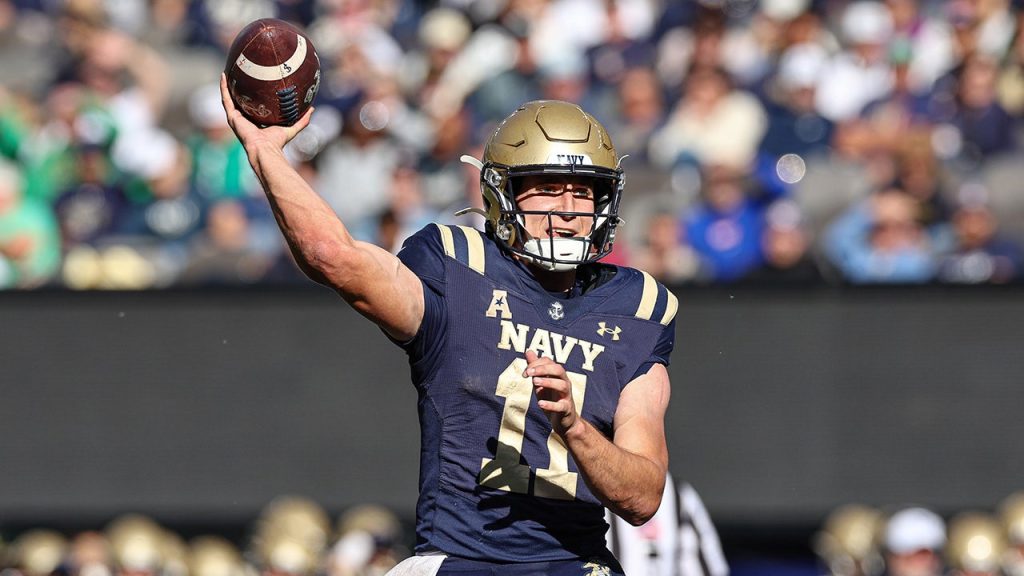The Navy athletics department expressed frustration with bettors following the Midshipmen’s loss to Rice, where the team failed to cover a 12.5-point spread and the total fell short of the over-under of 48.5 points. The team made decisions during the game that may have impacted bettors, including opting for a field goal instead of a touchdown and ultimately turning the ball over on downs and throwing an interception on their final drives. The athletics department made it clear that they do not care about fans’ bets or parlays and will block anyone who complains or brings up gambling.
The increase in sports betting in recent years has led to backlash from fans towards teams and players. Players like Saquon Barkley and Tommy DeVito have experienced requests for money from fans who were not happy with the outcome of their bets. Barkley mentioned that he often receives tweets about parlays and sports bets involving him, some resulting in requests for money. DeVito also shared his experience with fans sending Cash App and Venmo requests when their bets did not pay off. While acknowledging the entertaining aspect of sports betting, both players emphasized the gambling aspect and the potential negative outcomes.
The phenomenon of fans contacting players about their bets and parlays has become increasingly common, especially with the rise of social media. It has created a new dynamic between fans and athletes as they interact over the outcomes of games and wagers. While some players may see it as lighthearted fun, others emphasize the serious nature of gambling and the impact it can have on individuals. The pressure that comes with fans’ expectations in betting situations can be stressful for players, who ultimately have no control over the outcomes of games.
The Navy athletics department’s response to bettors and their complaints reflects a broader trend in professional sports where increased gambling has led to new challenges and controversies. Teams and players are now dealing with the consequences of fans’ financial investments in sports betting, which can sometimes lead to unreasonable expectations and inappropriate demands. While players may try to navigate this new landscape with humor and tolerance, there are also concerns about the potential negative impact of sports betting on athletes’ mental health and well-being. It remains to be seen how the sports industry will continue to address these issues moving forward.
The issue of sports betting and its impact on athletes extends beyond just the financial aspect, raising questions about the ethics and boundaries of fan-player interactions. As the line between sports and gambling continues to blur, it becomes increasingly important for teams and leagues to establish clear guidelines and protocols for dealing with fans’ betting-related inquiries and demands. Athletes like Barkley and DeVito have shared their experiences with fans’ requests and emphasize the need for boundaries and respect in these interactions. The ongoing dialogue surrounding sports betting and its implications for athletes underscores the evolving nature of the sports industry and the importance of protecting the well-being of all individuals involved.
The controversy surrounding the Navy athletics department’s response to bettors highlights the complexities and challenges that come with the growing presence of sports betting in collegiate and professional sports. As teams and athletes navigate this new landscape, it is crucial to prioritize the integrity of the game and the well-being of players while also respecting the interests and investments of fans. Finding a balance between entertainment, competition, and financial interests is key to ensuring a positive and sustainable future for sports and gambling. Ultimately, the impact of sports betting on athletes and teams will continue to be a topic of discussion and debate as the industry adapts to changing norms and expectations.


